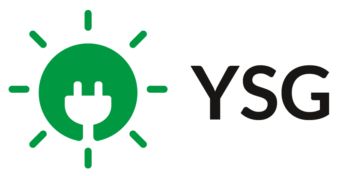A common misconception about solar is that users must have a roof in order to reap its benefits. However, community solar developments offer a smart and efficient solution that allows solar energy for all.
What is Community Solar?
Community solar offers homeowners, residents, and businesses equal access to the financial and environmental benefits of solar power regardless of physical location or land ownership. Local solar facilities are used to produce power for subscribers who receive credits on their electricity bills for their share of the power produced.
Common Financial Models for Community Solar
The most commonly used models to finance community solar projects include:
- Utility-Owned Model
- Developer-Owned Model
- Special Purpose Entity-Owned Model
- Nonprofit Model
Utility-Owned Model
The utility-owned model is the most common community solar framework in the United States. Through this model, a local utility owns the solar array, and either sells a set amount of solar electricity at a fixed rate, or sells/leases solar panels to customers.
Customers purchase a share in the project in return for credits on their electricity bills. They may choose to purchase their share upfront or pay a monthly fee to the utility. In exchange, customers receive billing credits proportional to their monetary contribution and generated solar energy. Legislations and regulations determine the ultimate value of those credits.
In the utility-owned model, the customer owns no stake in the solar structure—instead they purchase the rights to the benefits of the generated energy. Utility-owned projects decrease the initial purchasing costs of the program, while enabling customers to purchase solar energy through monthly payments.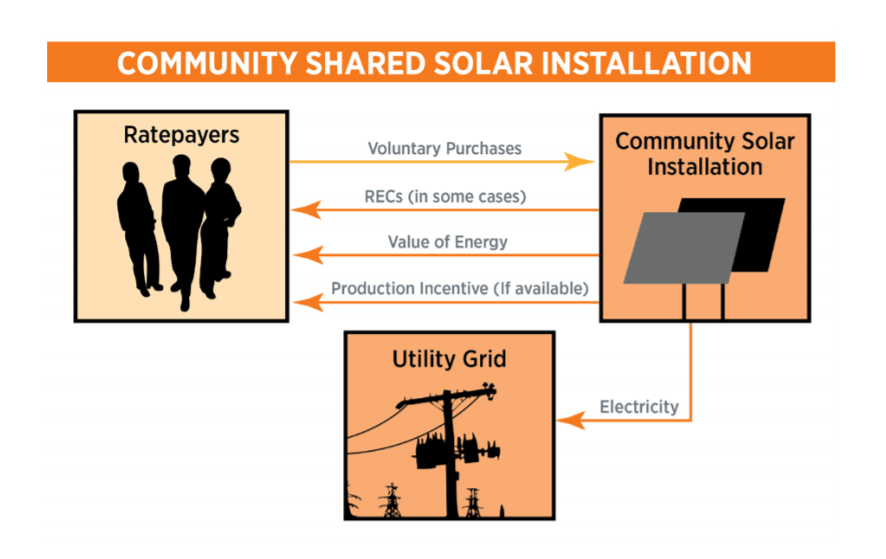
Developer-Owned Model
In the developer-owned model, a solar developer designs, builds, owns, and operates the community solar development. The developer is responsible for finding and leasing a host site, as well as securing the financing, permits, and insurance to construct the project. Usually, the developer would work alongside a Subscriber Management Organization (SMO) to acquire subscribers and manage subscriptions. Subscribers can either purchase/lease panels or purchase fixed amounts of solar electricity. Billing credits are then provided to subscribers for their share of generated solar electricity. 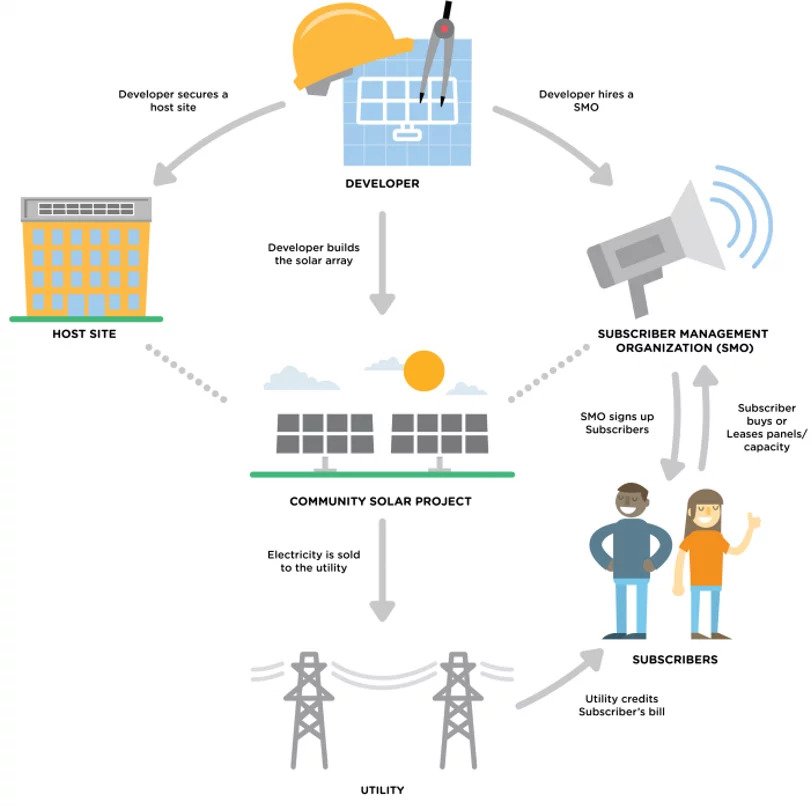
Special Purpose Entity Model
A special purpose entity (SPE), also known as a business entity, possesses ownership of the community solar project. The SPE model provides members with private ownership to their individual panels. In other words, users join a business operation to develop a community solar project. Customers can either purchase their panels upfront or purchase a monthly subscription for the power output of the panel.
Special Purpose Entities structure their finances to maximize federal tax incentives:
- Self-financing allows for the community SPE to invest equity into the project. However, the SPE must have enough community investors that possess a sufficient tax appetite to use federal tax incentives.
- Flip Structure allows for the community SPE to partner with a tax-motivated investor in a new SPE that owns and operates the community solar project.
- Sale/Leaseback allows for the community SPE to install the solar systems, sell it to a tax investor and then lease it back.
- Brooklyn
- Manhattan
- Queens
- Staten Island
- The Bronx
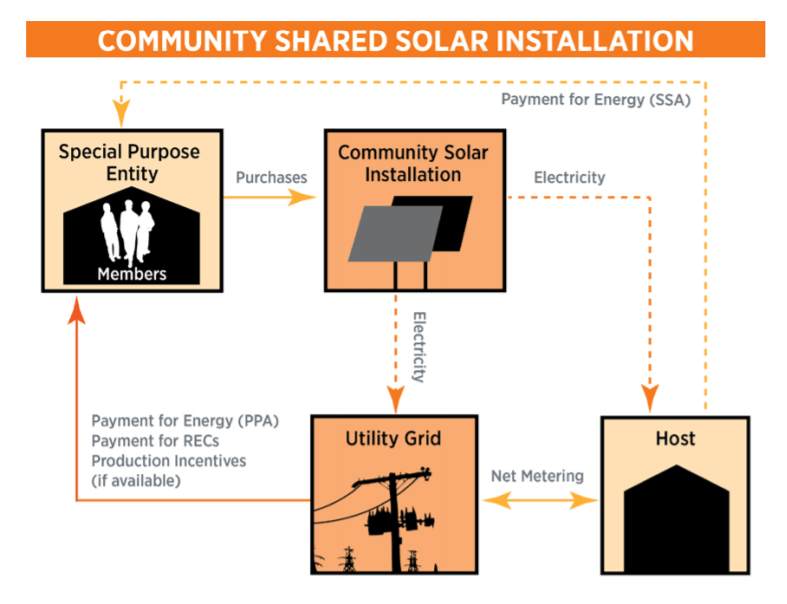
Nonprofit Model
Under a nonprofit model, a nonprofit organization may organize and administer a community shared solar project on behalf of its donors or members. Supporters of the nonprofit organization aid in financing the solar project through tax-deductible donations or direct investments. Nonprofits may qualify for grants or funding that would not be available to businesses.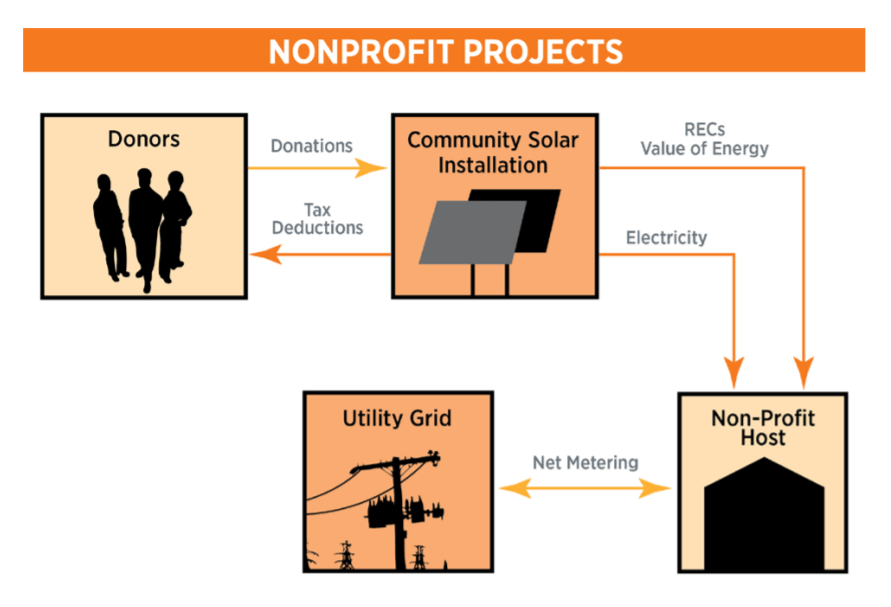
Comparing These Community Solar Models
The table below, courtesy of the National Renewable Energy Laboratory (NREL) compares and contrasts the key features of the community solar models we have discussed in this article.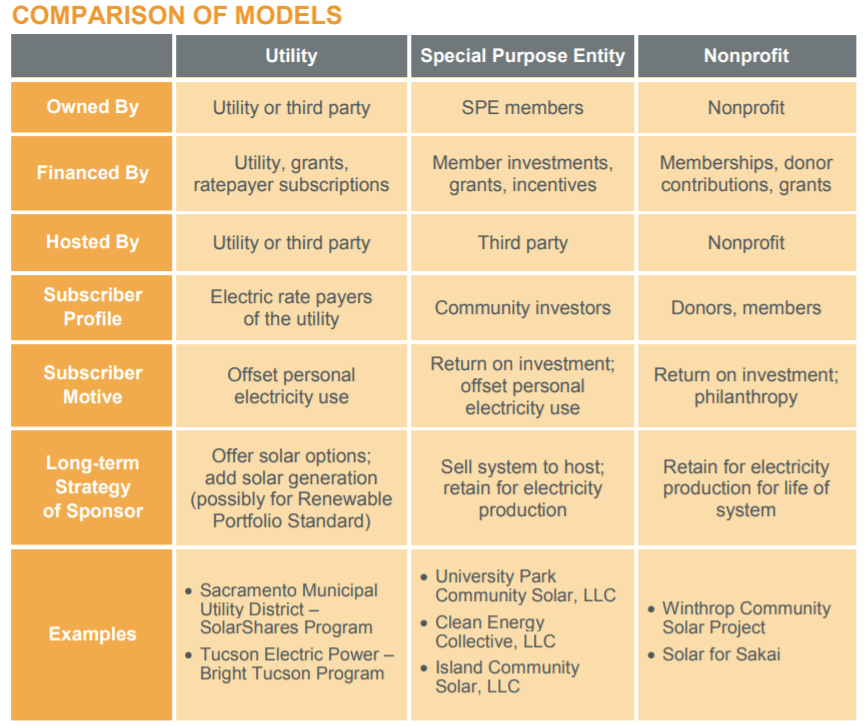
The Pitkin Project: New York City Community Solar
The Pitkin Project is a YSG community solar garden located in East Brooklyn, open to subscribers from all five NYC boroughs. If you’re a residential energy user in New York City, you are eligible to sign up. Subscribe and save now in:
To learn how much you could save with a community solar subscription, call the office at 212.389.9215 or send us an email today.
YSG Solar is a project development company responsible for commoditizing energy infrastructure projects. We work with long-term owners and operators to provide clean energy assets with stable, predictable cash flows. YSG's market focus is distributed generation and utility-scale projects located within North America.
Sources:
https://www.elevateenergy.org/programs/solar-energy/community-solar/business-models/
https://www.nrel.gov/docs/fy12osti/54570.pdf
Images courtesy of the National Renewable Energy Laboratory and SolSmart.
